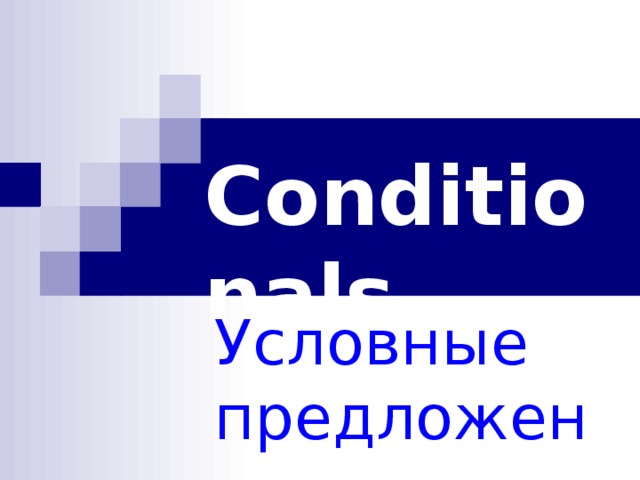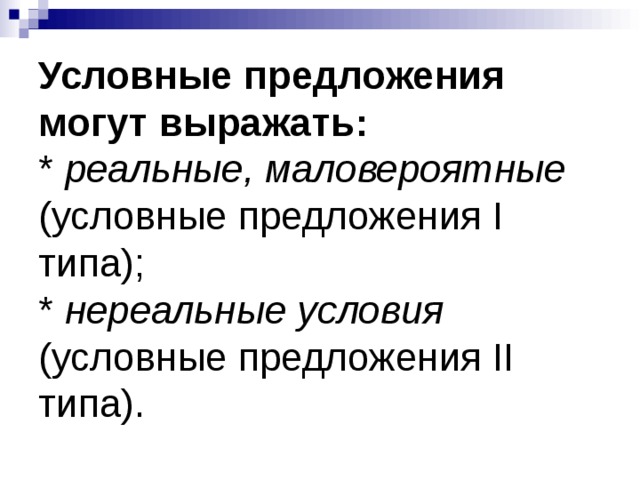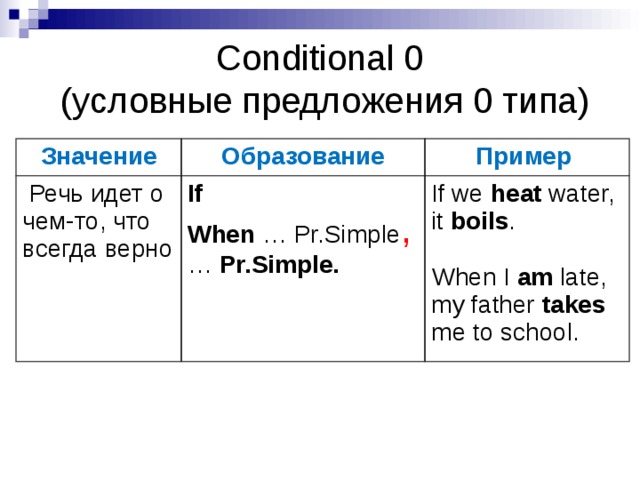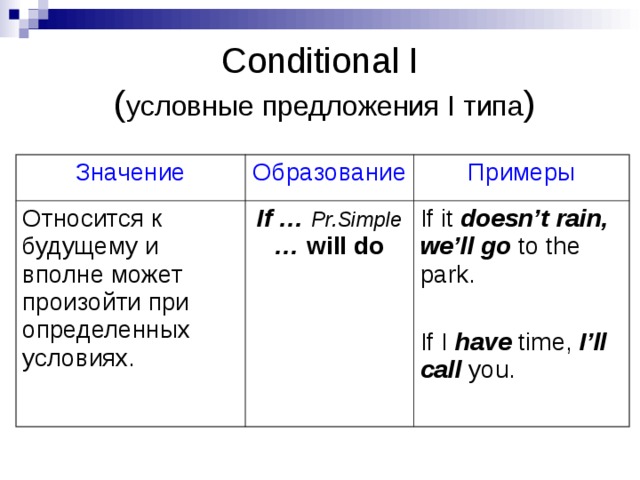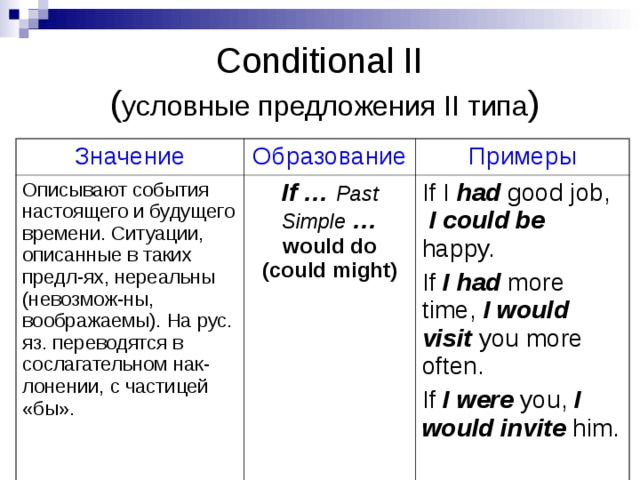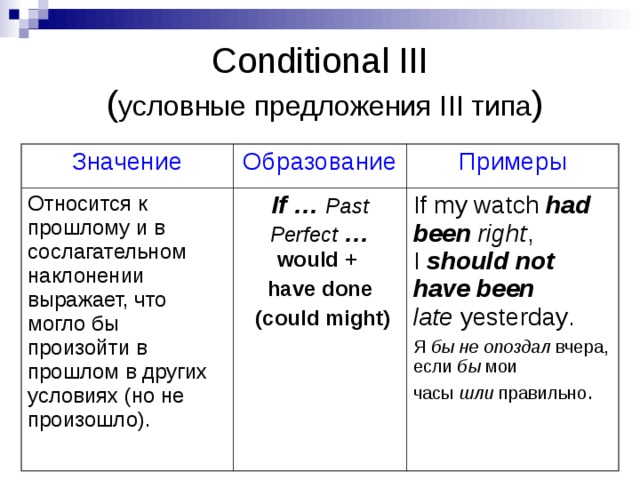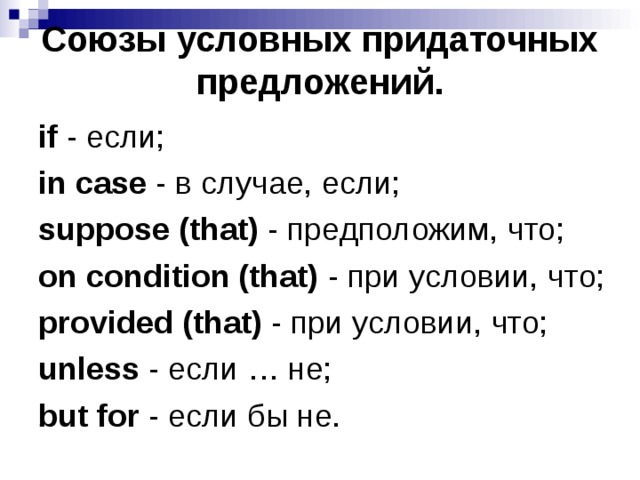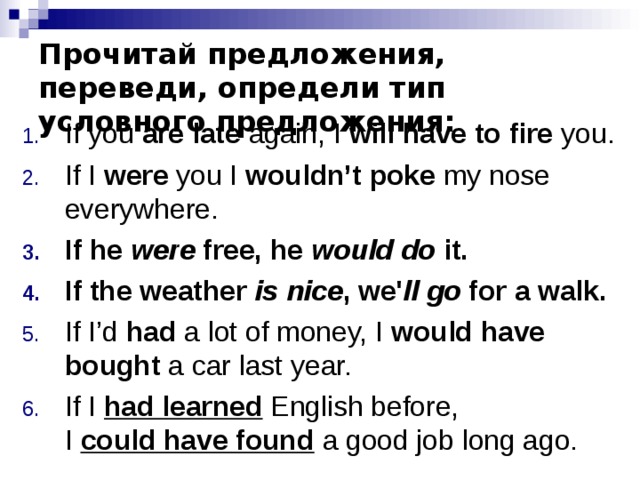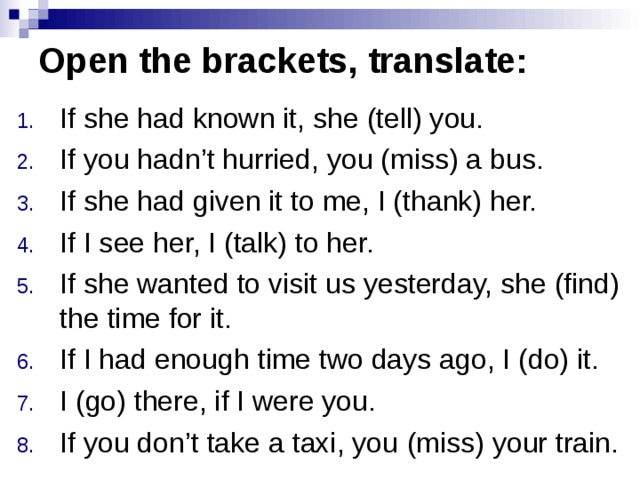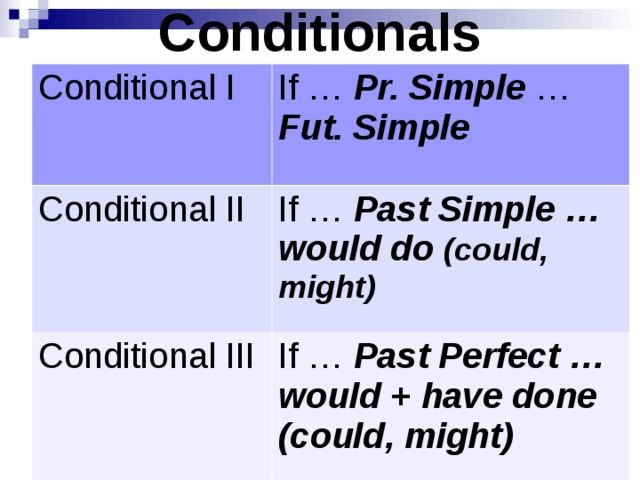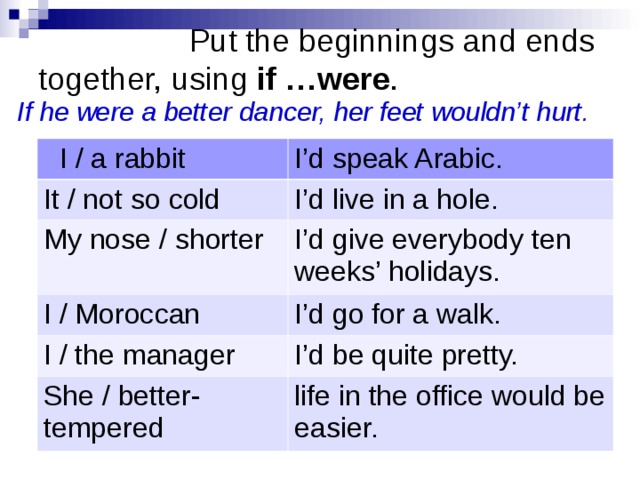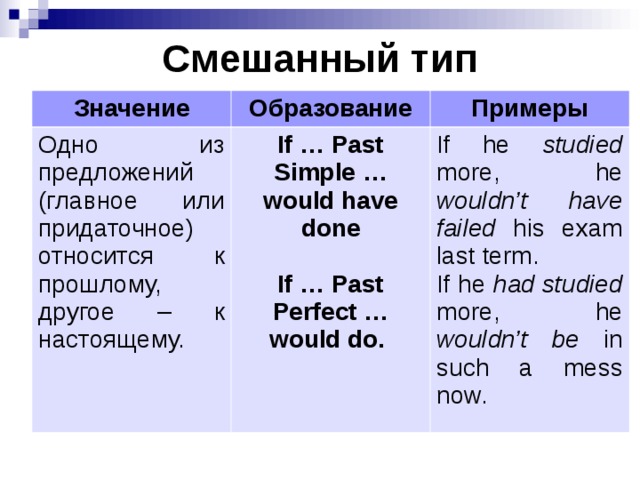Данная презентация представляет собой теоретический материал с упражнениями по теме «Условные предложения».
Создайте Ваш сайт учителя Видеоуроки Олимпиады Вебинары для учителей
Conditionals (Условные предложения)
Вы уже знаете о суперспособностях современного учителя?
Тратить минимум сил на подготовку и проведение уроков.
Быстро и объективно проверять знания учащихся.
Сделать изучение нового материала максимально понятным.
Избавить себя от подбора заданий и их проверки после уроков.
Наладить дисциплину на своих уроках.
Получить возможность работать творчески.
Просмотр содержимого документа
«Conditionals (Условные предложения)»
Полезное для учителя
Распродажа видеоуроков!
1940 руб.
2770 руб.
1760 руб.
2510 руб.
1940 руб.
2770 руб.
2160 руб.
3080 руб.
ПОЛУЧИТЕ СВИДЕТЕЛЬСТВО МГНОВЕННО
* Свидетельство о публикации выдается БЕСПЛАТНО, СРАЗУ же после добавления Вами Вашей работы на сайт
Удобный поиск материалов для учителей
Проверка свидетельства
